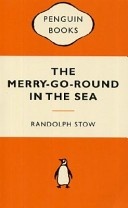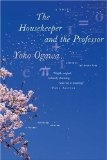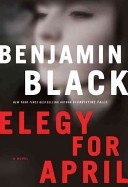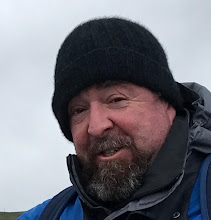Beware: spoilers ahead, maybe.






The newest, greatest Australian novel -Bereft by Chris Womersly is rather over-rated. First world-war soldier and hero comes home to where he is thought by his family and the small-town's inhabitants, particularly the policeman his uncle - cue the woooo music - to have murdered his sister 10 years earlier. He didn't do it, or did he? No, this other guy did it, the one is chasing an inexplicably fore-sighted girl who lives in the hills, where the soldier too - Rambo-like but nothing like Rambo - hides out. Surprisingly (or not, given the hysterical praise quoted in the blurbs and the reviews), the prose is not magical, not Cormac McCarthy-like at all. It is just words, words like mine - well not like mine exactly - sequential, impersonal (is this what is supposed to be McCarthy-like?), it seems adjective-less, adverb-less, though I am exaggerating a bit here. Nothing special, nothing different from anyone else in the novel-writing work-shop, from any over-edited writing excercise.
The end is an anti-climax, not one twist nothing surprising or quirky or memorable; the murderer is just the person we expected it to be, as we knew in fact - we were fucking TOLD - from the first third of the book.
I really don't get what is about Australian book reviewers. I rarely agree with their opinions which are universally positive. Are they in the pockets of the publishers, or am I tasteless and stupid? Don't answer that.
Lesson? Beware the Next Best Thing - not a new piece of advice, that. Read the classics. At 53 and feeling like death is around the corner (my family history? you have no idea!) there is no time for contemporary, transient fashion, no mater how enthusiastically hyped. Except maybe some of Bolano, or David Mitchell, or. Only time can tell. Life is short, the struggle hard, success fleeting - there's plenty to read already without all the new stuff. Including blogs.
~~
"The Merry-Go_Round In The Sea" by Randolph Stow (the late Randolph Stow - maybe he didn't press the lift door close button in time) is a classic (early 60's), it is magical. Its prose ripples and hums, surrounds you subliminally like the roar of cicadas in the bush. It is suffused with nostalgia and love, with a flood of amazingly delicate sensory images. With description, with real people. A young boy (Stow's age - this is something of a semi-autobiographical bildungsroman) grows up in small town in Western Australia where there is a rusty old - wait for it - merry-go-round, and where there is a wrecked ship sunken in the harbour with a spar that sticks out of the water like a broken - wait for it - merry-go-round in the sea.
The boy's hero-worshiped cousin (absent father syndrome) goes jauntily off to the second-world war. At the end of the war, the PTSD soldier returns; changed, emotionally shrunken, lost, severely affected by his horrific four years as a prisoner of war in Japanese camps (partially at Changi in Singapore, partially in Thailand). The cousin and the now adolescent boy can no longer connect. But the ending here too is, I feel, something of an anti-climax. The expected suicide - at least I expected a suicide - does not happen. But this is good for the boy - Stow often just calls him 'the boy' - obviously in Stow's life although people died (grand-mothers, sickly aunts) no-one committed suicide.
Lesson? There are books you should have followed up from your reading lists at school. We did "To The Islands" in Year 11 or 12.
~~
Other books:
Roberto Bolano's "At Night In Chile" - a rich stream of consciousness reminiscence by a dying priest. Reminds me of parts of Beckett (without the humour) or, even more closely, Hermann Broch's dream-like "Death Of Virgil" (no humour there either). Mesmerising. Really must try again on "Savage Detectives."
Yoko Ogawa's "The Housekeeper and The Professor" - reminiscent of Ryu (not Haruki) Murikami, a short novel set in a small Japanese seaside town in the off-season about a teenage girl and the kindly(!) older gentleman she visits. A twisted perverse emotionally chill ending. (The sort of ending that could have lifted "Bereft" out the ordinary bulk of the soon-to-be-remaindered first editions.)
Yunichiro Tanazaki's "Quicksand" - tragic lesbian triangle set in 20's Japan. Widow confesses to a famous novelist (wouldn't be Tanazaki himself would it?) what went wrong. Somewhat dated, but the morally ambiguous ambiance of Tokyo at that time is interesting, if not fascinating.
Benjamin Black's (John Banville) "Elegy For April" - nowhere near as gripping as the first couple ("Christine Falls", "The Silver Swan") in this series about an alcoholic abused-by-Catholic-priests-as-a-child pathologist in 50's Dublin, but still pretty damn good. Interestingly for the protagonist in a pathologist-as-crime-solver sub-genre, Quirke (quirkey, geddit?) rarely uses his infrequent autopsies for solving the plot. For a start, in this one, we know the April is dead not missing from the beginning, or why do think it's called "Elegy"?
~~
I only read excellent books (as a rule, but not always obviously) so all except Bereft are highly recommended.
Bereft is OK, just not as good as they say. Moderately recommended.
E@L











No comments:
Post a Comment